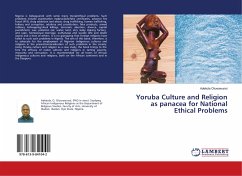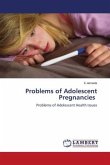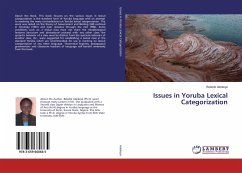Nigeria is beleaguered with some many moral/ethical problems. Such problems include examination malpractices/fake certificates, advance fee fraud (419), drug addiction and abuse, drug trafficking, human trafficking, bribery and corruption, adultery and prostitution, fake products, armed robbery, kidnapping/ritual killings, terrorism, abortion, divorce, capital punishment, war, pollution (air, water, land, etc), baby making factory, and rape, homosexual marriage, euthanasia and suicide (life and death issues) and a host of others. It is no gainsaying that foreign religions have failed to curb such problems in Nigeria. The aim of this book, therefore, is to advocate for the employment of Nigerian Indigenous cultures and religions in the prevention/eradication of such problems in the society. Using Yoruba culture and religion as a case study, the book brings to the fore the efficacy of native cultures and religions in taming poverty, insecurity and corruption. It is recommended for all lovers of African Indigenous cultures and religions, both on the African continent and in the Diaspora.
Bitte wählen Sie Ihr Anliegen aus.
Rechnungen
Retourenschein anfordern
Bestellstatus
Storno








